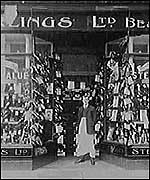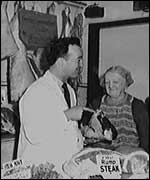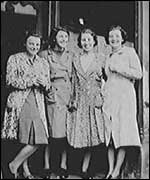|
The Grainger Market
The Grainger Market in Newcastle is a North East institution.
It opened in 1835 after an opening ceremony attended by over 2,000 people.
 |
| Typical shop |
The market boasted 243 shops including numerous butchers
and vegetable stalls, and 14 entrances
The Grainger Market is one of the only remaining the
19th century covered markets still trading as a market. Today it employs
800 people and boasts 200,000 shoppers every week.
The Grainger Market was built by Richard Grainger and
architect John Dobson in 1835. It revolutionised shopping in its day.
When it opened it was the largest indoor market in the world.
The market was laid out in a grid-iron pattern with 156
butchers shops and an arcade selling fruit and vegetables.
 |
| Butcher stall |
Even today the Grainger Market has managed to keep some
of its original features. There has been a weigh house since the market
was built to weigh hunks of meat.
Today it's the shoppers who queue up to be weighed.
The market also still has an air raid shelter underneath
the length of the arcade.
The Grainger Market has survived fires, two world wars
and threatened demolition, and is about to undergo another transformation
with improvements to bring it into the 21st century.
The Quayside Market
Newcastle's Quayside Market is one of the largest Sunday
Markets in England, attracting up to 100,000 people every week.
 |
| Shop assistants |
The market is every bit as popular today as it used to
be in the last century when you could pick up a bargain, see a side show
or even watch an orator or escapologist.
The Quayside Market has a long history dating back to
1736 when it was first recorded in historic records as a fair.
The original Quayside market stretched from the old Tyne
Bridge (near the site of the current Swing Bridge) along Sandgate and
beyond.
Commercial stalls selling every manner of goods were
pitched along the riverside with a variety of fairground attractions and
racing tipsters providing added entertainment.
The market continues to this day and you can still grab
everything from a cheap suit to a pair of trainers or a set of crockery.
Credits
Photographs care of the Beamish North of England Open Air Museum Photographic
Archive.
|

